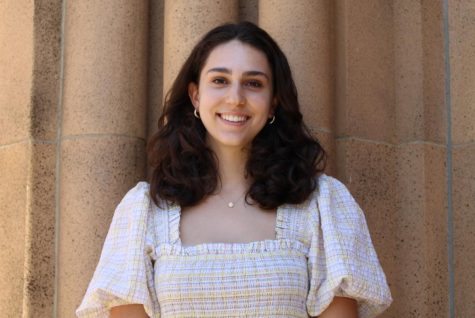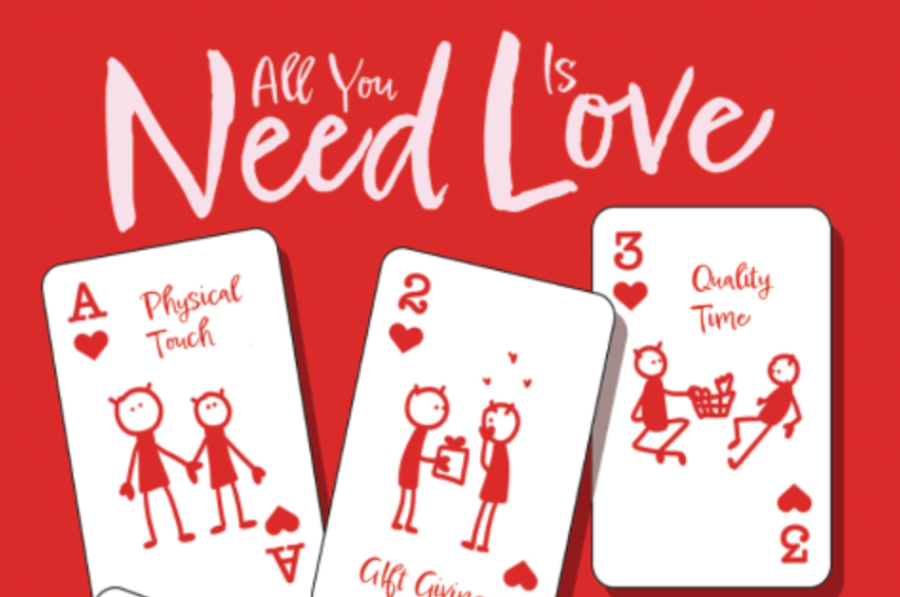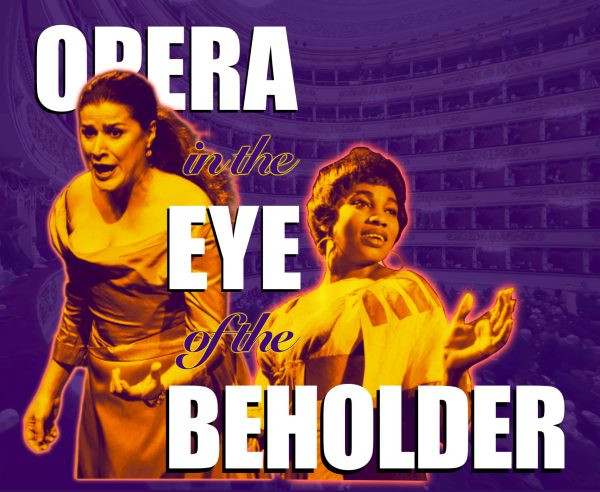All You Need is Love
Exploring how the five love languages manifest themselves in our relationships
Words of affirmation: the verbal acknowledgments of affection. Acts of service: the act of doing something thoughtful for someone else without expecting something in return. Receiving/giving gifts: gifting something special from a cup of coffee to a diamond necklace. Quality time: giving your undivided time and attention to someone. Physical touch: the hug or hand squeeze that makes people feel safe. These many gestures of love correlate to five distinct “languages” in which individuals communicate their feelings for one another. Most have a preferred love language that gives them a greater sense of love and satisfaction in a relationship. Although they were originally created to help people in romantic relationships understand each other better, they apply to the multitude of relationships we have in our everyday lives.
In a romantic relationship, physical touch is frequently viewed as the most conventional way to express your love. Sophomore Miya Joshi believes you can receive this type of love in any type of relationship. “I really like [to receive] physical touch, whether that’s with my friends, family or romantically,” Joshi said.
For junior Evie Barclay, physical touch is also important. In fact, there is even a scientific benefit that Barclay learned from her experiences as a dancer. “Pressure from a hug is known to activate the vagus nerve, which helps the body move from a high-cortisol or stress mode into a more relaxed and calm state,” Barclay said. “At a dance summer program, we did this by lying on our backs, crossing our arms over our chests and deep breathing for a few minutes.” This connects to how Barclay places importance on physical touch within any relationship she has, resulting in her feeling more relaxed.
Hugs release oxytocin, aka the ‘love hormone.’ “Just [receiving] a hug activates my parasympathetic nervous system which helps the body function overall,” Barclay said.
Senior Arthur Garzon prefers receiving words of affirmation, especially in the form of encouragement, appreciation, or empathy. To show he cares for someone, he likes to encourage them and show gratitude verbally. “[Words of affirmation] are the most universal form of admiration and respect,” Garzon said.
For senior Samantha Yamashita, all languages have importance in sustaining a healthy relationship. She finds it exciting when someone shares her preference for quality time, but recognizes the importance of accepting others’ favored love languages. “It’s important to be responsive to other people’s primary languages when building any sort of relationship, even if their style of expression is different from yours,” Yamashita said.
Similarly, junior Will Rowell believes no singular love language defines his relationships. “I feel like I can resonate with all types of love languages,” Rowell said. “I think we all use them in different situations, but the type of love that I use the most would be quality time.”
Even though quality time may be his favored love language to give, Rowell prefers a different language to receive because it feels more powerful and meaningful than others. “Words of affirmation [show that someone loves me]; those are harder to give than gifts because you have to know how you feel before you say [anything],” Rowell said.
Having effective communication in a relationship means that no matter your love language, love can easily be displayed and acknowledged. A parent who loves their child shows their love differently than how they might show love to a friend, but that doesn’t mean the love is any less meaningful. “An easy way for me to show love to [my parents] is to do the dishes when it’s not my turn, or taking on an extra task so that they have less on their hands,” Barclay said.

With her friends, Barclay doesn’t see the same opportunities she has with her parents to receive affection. She prefers to receive words of affirmation and physical touch from her friends, which provide her with the different types of love needed in her life. “My parents cannot give me the type of emotional satisfaction that a friend or a partner can,” Barclay said. “I think that as human beings we all need love from many different areas in life.”
This idea of having love from different areas in your life connects to the various sorts of love. With love among your family, there is a mutual understanding that you love each other unconditionally, but falling in love with someone may shift who you prioritize. “The difference is that you’re in love with them, rather than you love them,” Rowell said. “[Being in] love with somebody that you like is selfless and you’re willing to put that person over yourself.”
“With family, I think it’s similar to a friendship; [it’s] more of a care and respect relationship,” Rowell said. “But once you get into a romantic love I think that’s where it splits off from the type of love that you share with [your family and friendships].”
Garzon echoes this sentiment of the similarities between a friendship and the relationship between a family. Both relationships involve companionate love, which centers on loving the good of a person by showing them trust and loyalty, rather than romantic feelings. “Friends are basically family members you choose,” Garzon said. “There isn’t much of a discrepancy between how I express love to them and family members.”
But no matter who you are showing love to, knowing that you are willing to take risks shows that you care enough to put them first. “[I show others love] through words of affirmation and loyalty,” Rowell said. “I think that loyalty [is extremely important] when it can come at a cost to yourself.”
Respect is very vital in relationships. Commitment to the other person and respect for their needs and goals are the foundations of lasting relationships. “What really matters in any personal relationship is the overall mutual respect and how that respect grows and expresses itself into deeper feelings of companionship,” Garzon said.
Similar to Rowell’s belief that no one language is better than the others, Barclay feels that she can appreciate multiple expressions of love. “While my love languages are words of affirmation and physical touch, those are not necessary [for me] to see that someone loves me,” Barclay said. “The way that I pick up on that tends to come more from body language and tone, tiny behaviors that aren’t always obvious.”
Love does not have to be expressed in a single way to be the most profound. Knowing the language of the other person in a relationship may sometimes indicate that you are aware of their concerns as well. “You can usually tell what [their love language] is and adapt to what they like; whether it’s acts of service or words of affirmation, do what works best for them,” Joshi said.

Joshi found that physical touch is her preferred love language because it provides a tangible display of love. “Physical touch is how I like to be loved,” Joshi said. “My friends show me they love me through physical touch [by] hugging and sweet little gestures.”
No matter what your love language may be or what someone else’s maybe, unconditional love holds the same importance for everyone. “I feel like love is deeply rooted,” Rowell said. “[There is an] understanding that you will always support that person no matter what.”
Art by Kellyn Scheel
Print Issue
Please click on the three vertical dots on the top right-hand corner, then select “Two page view.”

2021-2022 - Staff Writer
2022-2023 - Editor-In-Chief
I joined C Mag because I really enjoy design and arts, and the creativity it comes with it....

2021-2022 - Staff Writer
2022-2023 - Editor-In-Chief
I joined C Mag because I love art, culture, and music, and I wanted to write about them! ...







